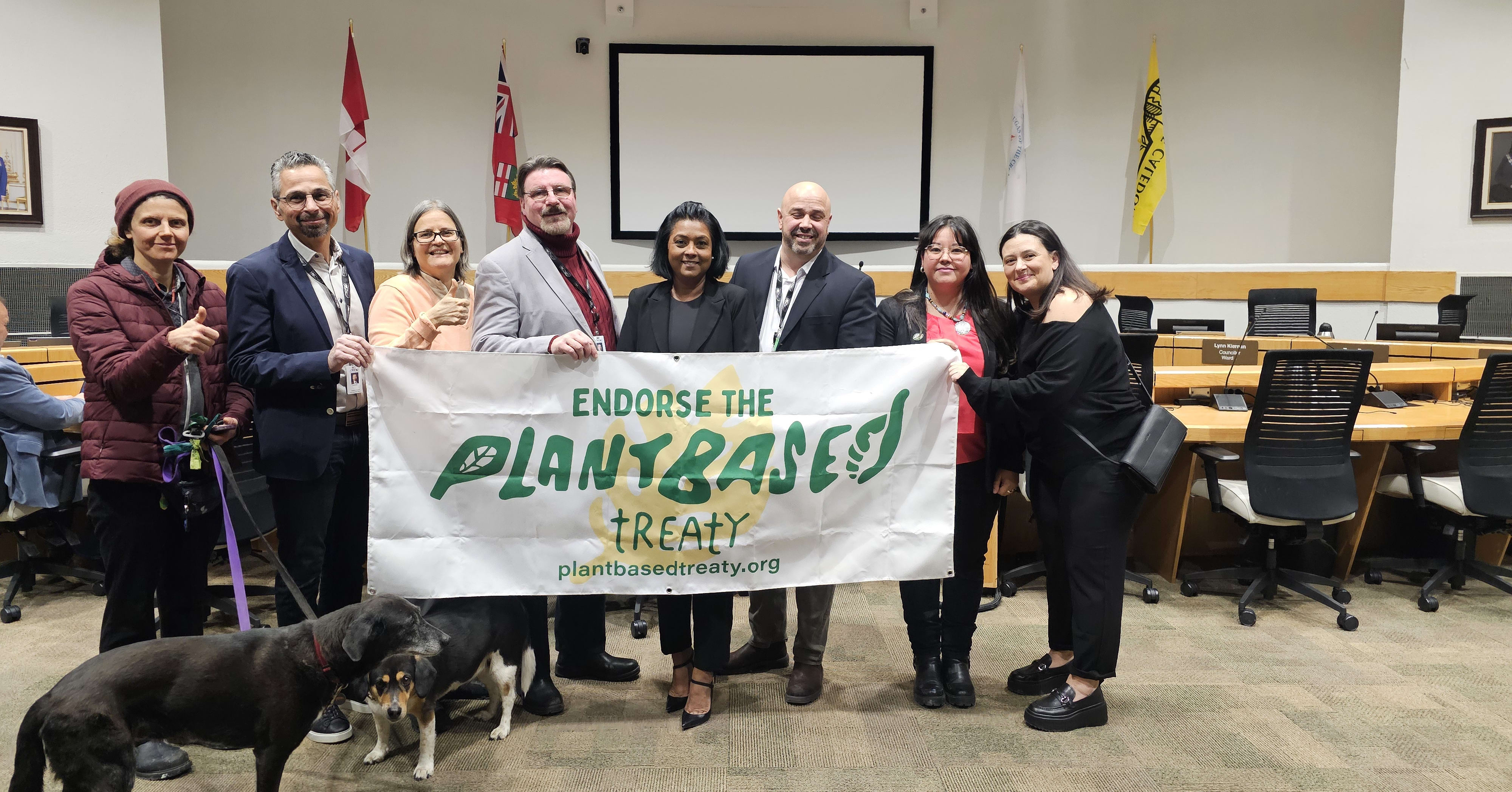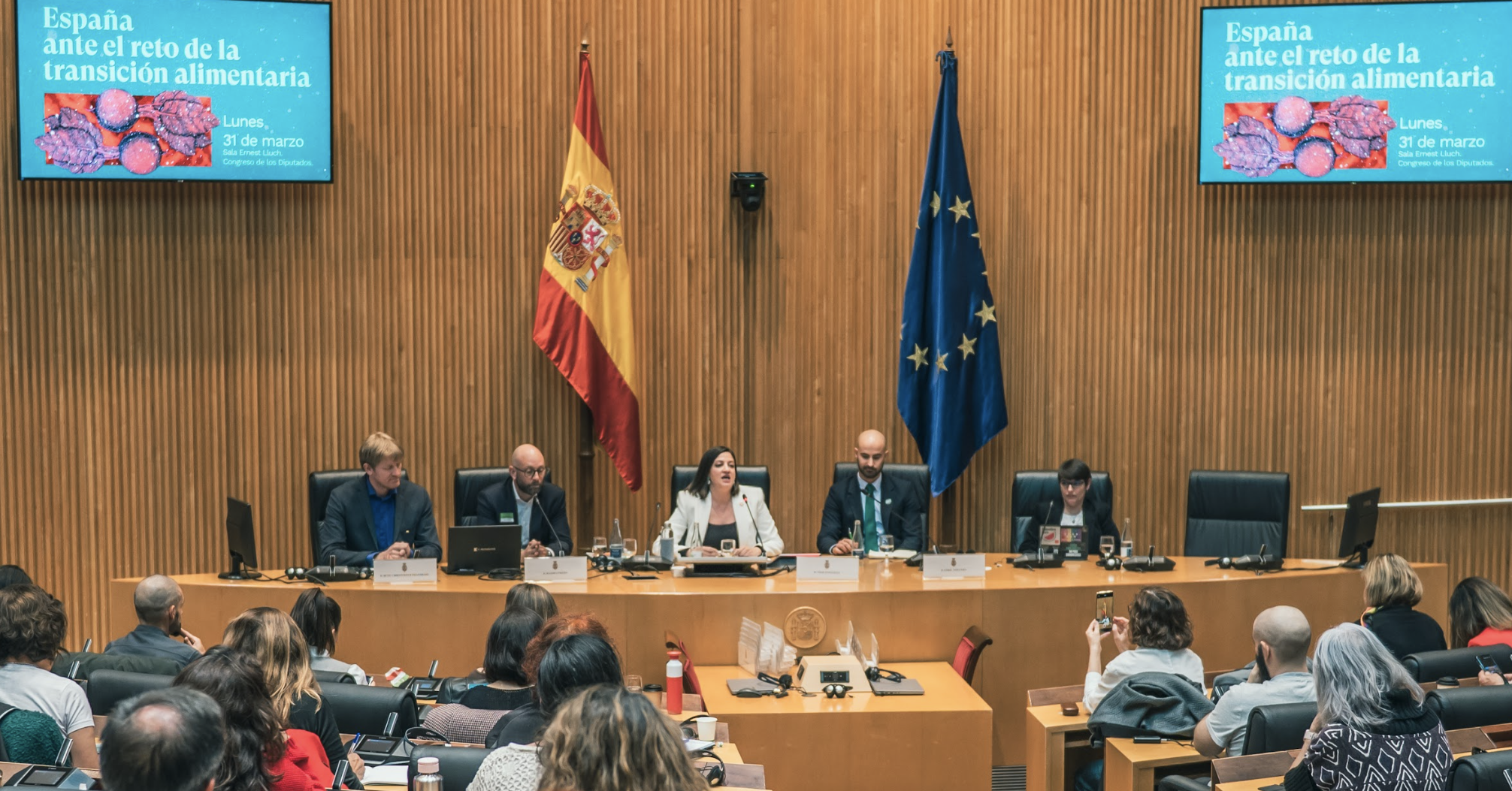On February 11 2025, the Town Council of Caledon, Canada voted six-to-two in favour of endorsing the Plant Based Treaty initiative to improve the health of residents and reduce greenhouse gas emissions. A third of global greenhouse gas emissions come from the food sector. The move means the Town of Caledon joins 35 towns and cities worldwide, including Brampton (Ontario), Los Angeles, Amsterdam and Edinburgh, in supporting a global Plant Based Treaty as a companion to the Paris Agreement.
A motion was introduced by Mayor Annette Groves and seconded by Councillor Tony Rosa, following a presentation to the Planning and Development Committee by Plant Based Treaty and EcoCaledon supporters. The motion states:
“That the Council of the Town of Caledon supports and endorses the Plant Based Treaty and the reduction of greenhouse gas emissions through plant-based approaches to food and food purchasing; and
That council directs staff to work with the Plant Based Treaty to include considerations for plant-based food and food purchasing in applicable future initiatives or work plans and report back to the Council as needed; and
The Council directs staff to circulate a letter of support to the Region of Peel and relevant stakeholders, including The Honourable Mark Holland, MP, Minister of Health.”
“I am very pleased to endorse the Plant Based Treaty to help improve the quality of life for Caledon residents,” said Mayor Annette Groves. “We must continue to look at creative ways to reduce greenhouse gas emissions through plant-based approaches to food and food purchasing to protect our future.”
Lucrezia Chiappetta, co-chair of ecoCaledon, who joined Yarim Hinojosa, city campaigner, and Anita Krajnc, global campaign coordinator, at Plant Based Treaty yesterday in a deputation to Caledon city council, said, “It’s fantastic to see the Town of Caledon endorse the Plant Based Treaty! This commitment aligns with our shared goals at ecoCaledon to promote sustainable food systems and plant-rich meals. By recognizing the environmental, health and social benefits of eating more plants, Caledon continues to set a strong example for municipalities everywhere. We are looking forward to seeing the positive impact of this initiative!”
Yarim Hinojosa, Plant Based Treaty cities campaigner says, “This new collaboration between the town of Caledon and Plant Based Treaty alongside ecoCaledon will create meaningful and positive changes for residents of Caledon that will benefit their health as well as help promote sustainability, food literacy, food security and the reduction of emissions that will inspire everyone.”
Anita Krajnc, global campaign coordinator for the Plant Based Treaty, says, “The town of Caledon follows their neighbouring city of Brampton in the Region of Peel in showing climate leadership on plant based food policy. Plant-based foods have a significantly lower carbon footprint and whole foods, especially raw cruciferous vegetables, promote optimal health and even help reverse diseases. We commend Mayor Annette Groves and council for helping their local residents and the global community be greener and healthier. ‘Cheers to you’ with a green smoothie!”
Caledon is the second municipality in Ontario to endorse the Plant Based Treaty in recent months. In November, Brampton endorsed and agreed to make “a plant based approach as a part of the city’s climate plan.” They committed to a range of measures, including evaluating the potential for increasing plant-based food options and introducing plant-based defaults in City of Brampton facilities and during regional events, and developing a plant-based action plan by April 2025.
Background
The Plant Based Treaty is modeled on the Fossil Fuel Non-Proliferation Treaty and since its launch in August 2021, the initiative has received support from 36 cities, almost a quarter million individual endorsers, 5 Nobel laureates, IPCC scientists, and more than 3000 groups and businesses, including Plant Based Canada, 350 Toronto, and chapters of Greenpeace and Friends of the Earth.
The Plant Based Treaty has secured high-profile endorsements from celebrities, including Bif Naked, and Paul, Mary and Stella McCartney, who issued a written statement calling for politicians to support the Plant-Based Treaty. They said: “We believe in justice for animals, the environment and people. That’s why we support the Plant Based Treaty and urge individuals and governments to sign it.”



